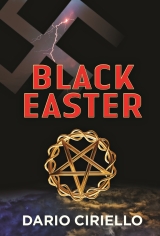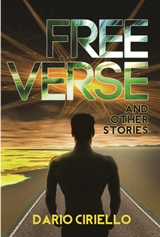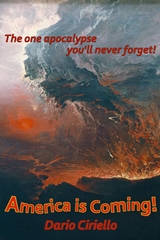One of the main things that make a book resonate with the reader is theme. Often confused with plot, theme is what a book is about.
This confusion is quite apparent when someone tells you they’ve just finished a book. Ask them what it’s about, and nine times out of ten they’ll tell you what happens in the course of the book—that’s plot. So whereas the plot of “The Lord of the Rings” may be to do with a Hobbit finding the arch-enemy Sauron’s great Ring of Power, and so on, the main theme of LotR is simply the conflict between Good against Evil (there are sub-themes, such as the arrogance and temptations of power, the power of humility, and courage in the face of certain defeat). In “Star Wars,” the primary theme is the struggle for freedom against tyranny and oppression.
In order to avoid preachiness, it’s best to approach the creation of fiction with the idea of simply telling a story. If the story contains Truth—by which I mean universal human truths, verisimilitude, reflection on the human condition—it’s very likely that theme will be present and emerge organically from character and situation, without premeditation on the part of the author.
When I began to conceive my just-released novel, “Sutherland’s Rules,” I’d been thinking a good deal about aging (since I turned sixty last summer, this will come as no surprise). I’d wanted to write a kind of anti-hero, high-tech, fast-paced thriller for a while, and this idea collided in my head with my concerns about aging to create the driving idea for “Sutherland’s Rules:”
Billy Sutherland, an aging, retired dope smuggler seizes the opportunity to cash in a forty-year-old IOU given him by an Afghani hash farmer in 1971 after a deal went sour. At sixty-six, Billy can’t do it alone, and so asks his oldest friend, Christian, to help him in this crazy, illegal, and highly dangerous adventure. Billy doesn’t need the dope, and doesn’t plan to sell it: it’s all about closure to him, and not going gentle into that long good night.
When I’d let the first draft cool and went back to the book, I realized it was overflowing with theme, and sub-themes, too: aging, the need for closure, the last hurrah before night falls, loyalty, the power of friendship, intergenerational debts of honour, freedom…not quite what you’d expect from a thriller about two old ex-hippies trying to smuggle a huge load of hashish halfway around the world and into the UK without coming to the attention of fortress Europe’s police authorities and the UK’s sophisticated detection tech.
Now, I’d not set out with the aim of addressing such lofty concerns—my desire was simply to write a cracking good story and have some fun doing it. But looking at the reviews, readers get these thematic notes: one reviewer described the book as “life-affirming;” another spoke of “an interesting take on aging”; and two others remarked on the underlying, touching melancholy of these two lifelong friends on what will certainly be their final adventure.
These themes emerged, I believe, because I can’t help putting a great deal of myself into a book, and that includes my reflections on life and death and society. These things are my truths. As a result, I believe I ended up with what I’ll call “an intelligent thriller,” as opposed to the typical, generic technoporn where forgettable characters just act out the plot, sowing mindless mayhem as they go.
So when Billy tells Christian, “And look, man, the game—our game, our life—is coming to a close. Maybe ten more good years, fifteen at most, then it’s good as over. I’ve got my exits mapped out, but I’m buggered if I’m going to die feeling I missed out”, he’s talking about what any reader who’s hit middle age—and certainly any reader old enough to remember the sixties—is very, very aware of: the final curtain coming down, the finish line clearly in sight, the end of adventure.
Theme matters because life is themed. As we blunder through this passion play, we can’t help coming to some conclusions, seeing universal patterns and currents, understanding that some things matter. When a writer puts all they have of themselves, of their Truth, into a story or novel, the reader will notice, and nod, and care.
In the words of the great poet, Robert Graves,
There is one story and one story only
That will prove worth your telling,
Whether as learned bard or gifted child;
To it all lines or lesser gauds belong
That startle with their shining
Such common stories as they stray into.
What’s your take on this?








